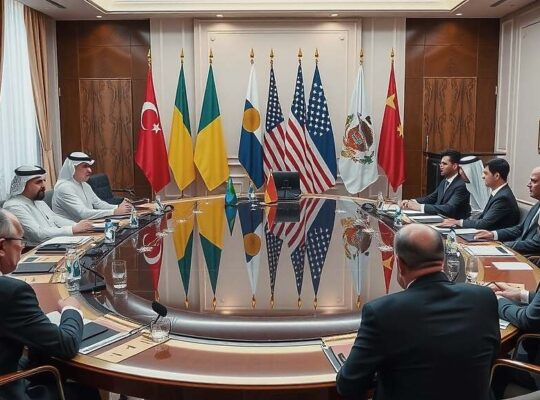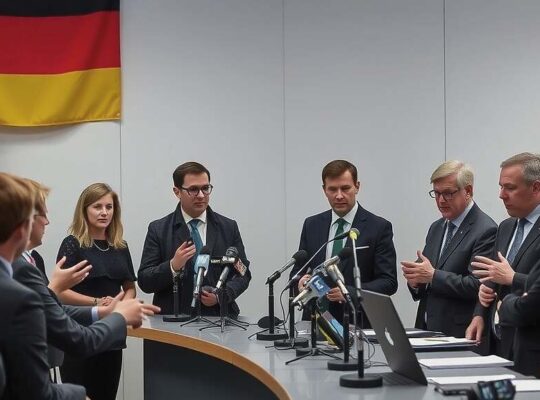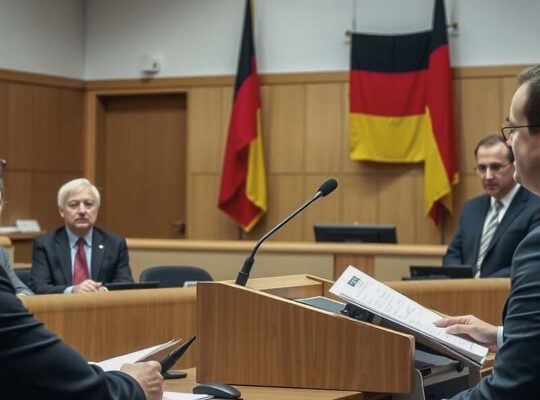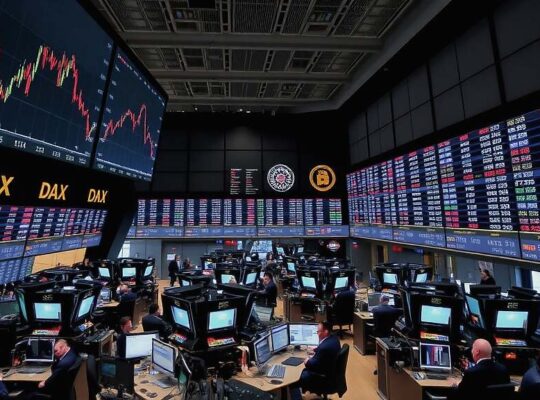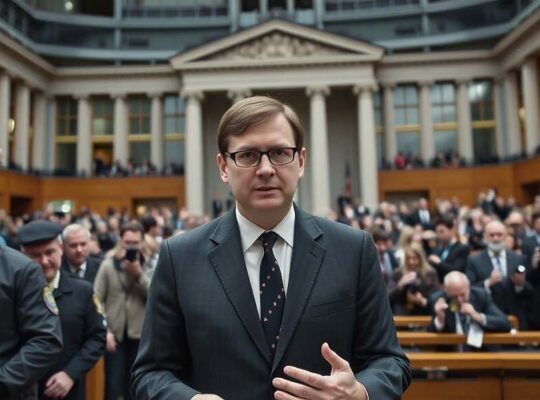A faction within Germany’s Left Party (Die Linke) is openly challenging a recent decision by the party’s youth wing, sparking a heated internal debate over the party’s stance on Israel and raising concerns about ideological drift. Seventeen prominent members of the Bundestag, including former parliamentary group leaders Dietmar Bartsch and Gregor Gysi, have penned a sharp letter to party leadership expressing their deep unease, a move signaling a potential fracturing within the traditionally left-leaning political force.
The controversy stems from a resolution passed at the Left Youth’s (Linksjugend Solid) 18th federal congress, which allegedly accuses the “colonial and racist character of the Israeli state project” from its inception to the present day. This resolution, framed within a broader motion titled “Never Again to Remain Silent on Genocide” has drawn fierce opposition from within the party’s elder statesmen and established figures.
The letter, circulated to party co-chairs Ines Schwerdtner and Jan van Aken, alongside parliamentary group leaders Heidi Reichinnek and Sören Pellmann, explicitly states the party cannot simply move past the youth wing’s decision and reports alleging intimidation and threats towards delegates during the congress proceedings. The signatories express alarm, suggesting that “something has slipped within our party.
The core contention revolves around the youth wing’s apparent abandonment of the Left Party’s long-held commitment to a two-state solution in the Middle East. The letter emphasizes this commitment as a cornerstone of the party’s program and resolutions designed to foster peace and equitable resolution. Furthermore, the signatories accuse a portion of the delegates at the youth congress of exhibiting “political behavior outside the consensus of our party.
The letter demands a firm response from the party leadership, calling for “political reliability and clarity” and warning against allowing the youth wing’s position or the associated behaviour to permeate the parliamentary group, which comprises 64 members. The signatories insist that the leadership must “clearly and noticeably draw boundaries” to safeguard the painstakingly established consensus within the party.
The internal dispute highlights a deeper struggle within Die Linke amid heightened global tensions and shifting political landscapes. Critics argue that the youth wing’s increasingly radical stance risks alienating more moderate voters and damaging the party’s credibility on crucial issues of international diplomacy and German foreign policy. The response from the leadership will be crucial in defining the future trajectory of Die Linke and its role within the German political arena.



